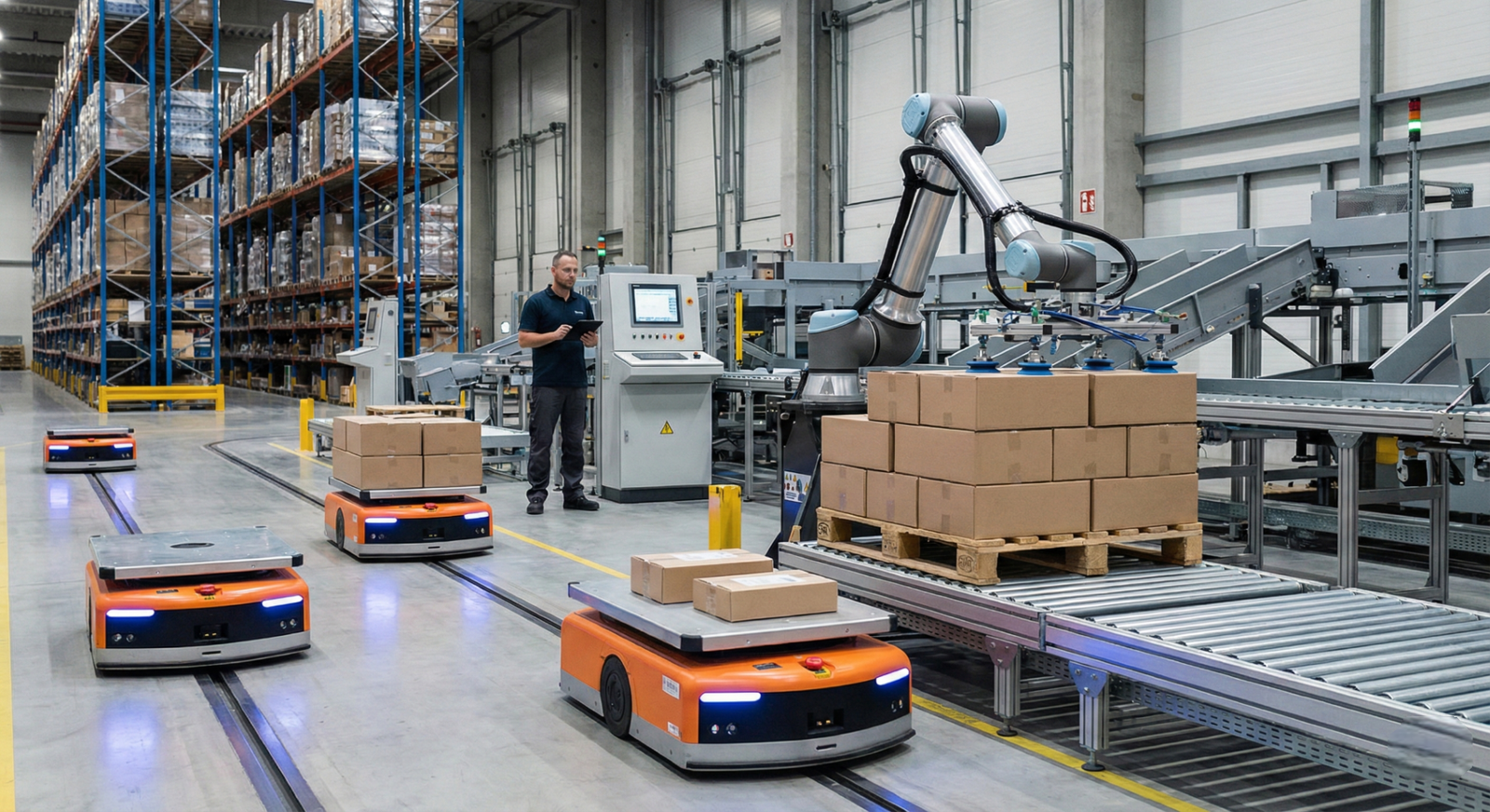Key Takeaways
- AI is completely changing how we find information online.
- AI search engines provide direct answers to your questions and personalize your search experience.
- They use machine learning and natural language processing to understand complex questions.
- They can find high-quality content, combine information from multiple sources, and customize the way they show you results.
- Ethical considerations and challenges remain, such as potential inaccuracies, biases, and data privacy issues.
Google handles over 99,000 searches per second and has roughly 5 billion users worldwide. It controls about 90% of the global search engine market. But what if you could find exactly what you need without looking through pages of results? Artificial intelligence (AI) is making that possible. AI-powered search engines are transforming how we search for information.
Traditional search engines give us a long list of links, putting the burden on us to find what we need. But AI is changing this. It allows search engines to understand our intent, provide direct answers, and personalize our search experience.
This article explores the rise of AI-powered search engines, how they work, their benefits, and what’s next for search in an increasingly AI-driven world.
From Traditional to AI-Powered Search

The Limitations of Traditional, Keyword-Based Search Engines
We have all used traditional search engines like Google to find information online. They work by matching the keywords you type in with the words on different web pages. This method is fine for simple searches, but it struggles with more complex questions. For example, if you search for the “best way to learn a new language as an adult,” you might get a list of language learning websites, but not advice specifically for adults.
Forget sifting through countless websites! AI search engines can summarize information from multiple sources and give you a direct answer to your question.
How Traditional Search Engines Work
Traditional search engines use automated programs called “spiders” or “bots” to crawl the web. These bots constantly browse the internet by following links to find new content. This content is then indexed, which means it is organized into a massive database. When you search for something, the search engine’s algorithms analyze this database to find matches based on your keywords and other factors. The most relevant results, from the most authoritative websites, are then shown to you first. This is done through a ranking process that considers things like how well the website matches your search and how trustworthy the website is.
The Emergence of AI Search Engines
A new type of search engine is emerging: AI search engines. These use artificial intelligence (AI) and machine learning to make searching more advanced.
Here’s what makes them different:
- Understand natural language: You can search using normal, everyday language.
- Figure out your intent: They understand what you’re really looking for.
- Give you direct answers: Instead of just a list of links, they give you the information you need.
- Have a conversation: You can talk to them like you would to a person.
- Multimodal search: Search with voice or images.
AI search engines are changing the way we search online by understanding the meaning behind your search terms. This allows them to deliver relevant results and avoid overwhelming users with irrelevant links, moving beyond traditional keyword-based SEO.
How AI Search Engines Work
AI search engines use a combination of machine learning (ML), natural language processing (NLP), and large language models (LLMs) to understand and process your search queries.
- Machine learning algorithms help AI search engines analyze massive amounts of data. This analysis helps them improve their understanding over time.
- Natural language processing helps the engine understand what your words mean. It also helps the engine understand the context of your search.
- Large language models allow the search engine to respond in a human-like way. They can also combine information from many sources. This allows AI search engines to summarize information and have conversations.
Key Differences Between Traditional and AI Search Engines
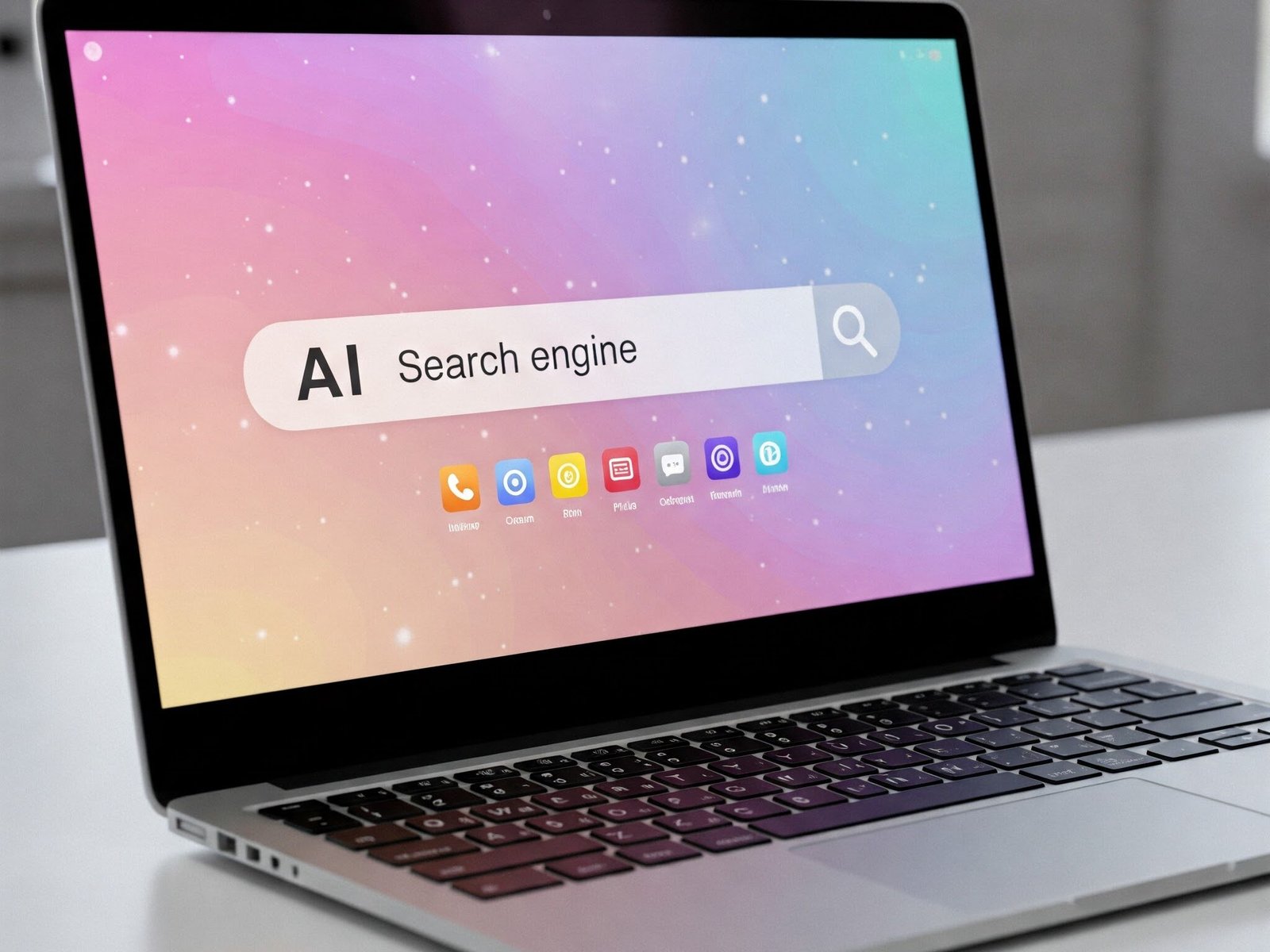
Results Format: Links vs. Direct Answers and Summaries
When you use a traditional search engine, you usually get a list of links to different websites. These links come with short snippets of text to give you an idea of what’s on the page. AI search engines work differently. They create short summaries of information they find on the web. These summaries often give you a direct answer to your question, so you don’t have to click through lots of different websites.
AI Search Engines Learn Over Time
AI search engines are constantly learning and getting better. They do this by looking at how users interact with them and by using new data. This means that the more people use them, the better their performance and search results become. Traditional search engines do not work this way. They treat every new search as if it’s the first one they’ve ever seen. They do not remember past interactions.
Keywords vs. Semantics and Context
Traditional search engines mostly rely on matching the keywords in your search with the words on web pages. AI search engines go deeper than that. They focus on semantics, which means they look at the meaning of words and how they relate to each other in a sentence. This helps them understand what you’re really looking for and give you better results.
Text Only vs. Multimodal Capabilities
Traditional search engines only work with text. You type in your search using words, and they give you results based on those words. AI search engines are evolving to become more flexible. They are starting to incorporate multimodal capabilities. This means they will be able to understand information from images, videos, and audio, as well as text.
AI search engines learn your preferences and give you personalized results, making your search experience more relevant and interesting.
Benefits of Using AI Search Engines
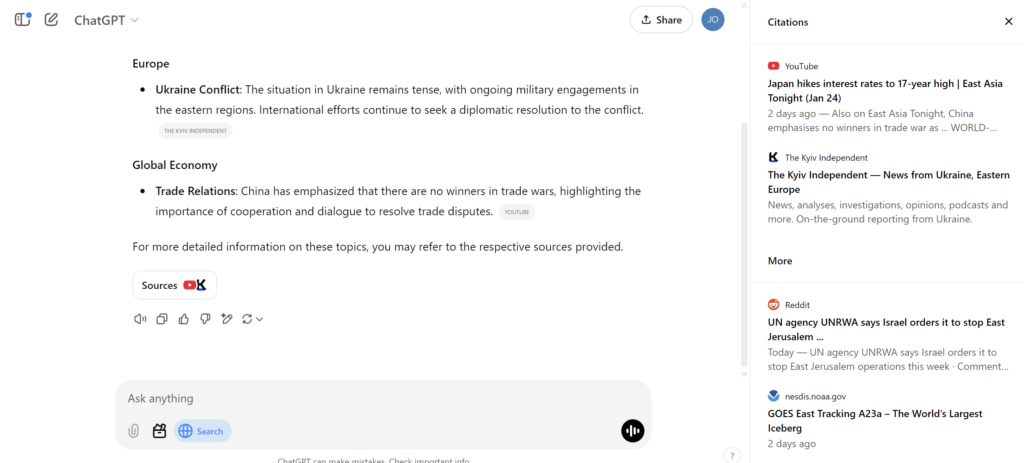
Enhanced Contextual Understanding
AI search engines excel at understanding what you are really asking when you type in a search. This allows them to give you answers that are both correct and relevant to your needs. They do this by understanding the meaning of your words, which leads to better and more focused results. Instead of just looking at keywords, AI search engines consider the context of your search. This means they look at all the words in your search and how they relate to each other to give you the most accurate results.
Personalized Results
AI search engines can learn from your behavior and preferences. They remember your past interactions to give you personalized results. This personalization makes your search experience more engaging and meaningful because the results align with what you actually need.
Asking Questions Naturally
AI search lets you ask questions just like you would talk to a person. This means you can use natural language inputs, making it easier and more accessible to find information. Whether you are doing in-depth research or just need a quick answer, AI search makes the process smoother.
Quick Access to Relevant Information
AI can process huge amounts of data very quickly. This means you can get quick and actionable insights, whether you are searching through company data or just looking for a specific fact. By using AI, you can reduce the time you spend searching for information.
Finding High-Quality Content
AI search engines can help you find high-quality content that you might not have even known you were looking for. They do this by analyzing patterns, related topics, and user interests. This analysis allows them to suggest relevant content that can enhance your search experience.
Information from Multiple Sources
AI-powered search engines can gather information from many different websites and put it all together to give you one short, helpful answer. This is really useful for those times you need a quick fact or want information without having to visit a bunch of different websites.
Combining Text, Images, and Voice
Some AI search engines are developing multimodal capabilities. This means that you will be able to combine text, images, and voice inputs to make your searches more precise. For example, you could take a photo of a landmark and ask for information about its history. This kind of search gives the search engine more context to understand what you are looking for.
Key AI Search Engines to Know
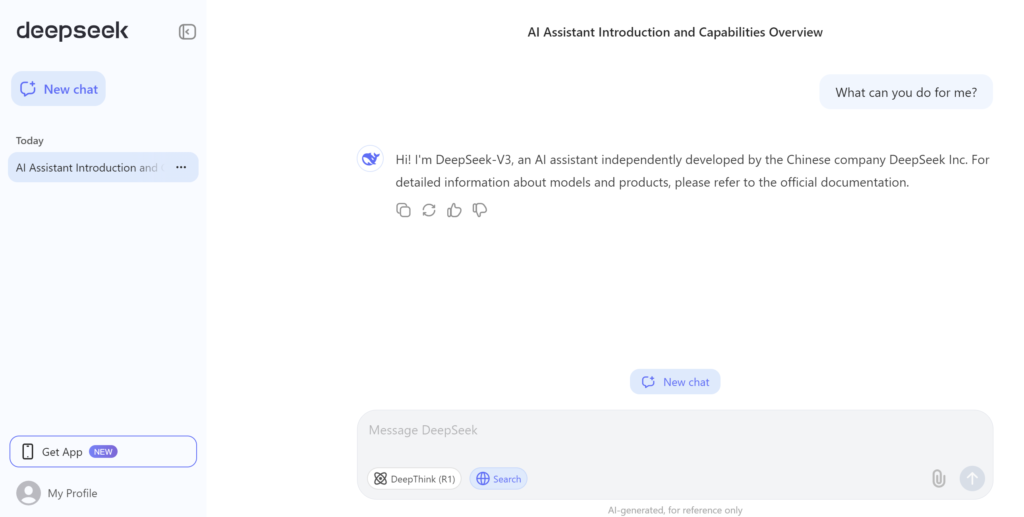
Several AI search engines are leading the way in this new era of search. Here are some of the most notable:
Perplexity AI:
- Perplexity AI is an AI search engine that combines web search with AI-generated responses.
- It’s known for providing detailed answers with citations, offering a blend of accuracy and conversational interaction.
- Key features include:
- AI-generated summaries with citations.
- Customizable search, including specific sources.
- Different query modes (Academic, Writing).
- Unique features such as Pages and Threads, which helps with content creation.
ChatGPT Search:
- ChatGPT Search is a feature that allows users to search the web directly within the ChatGPT interface.
- Introduced by OpenAI to enhance the capabilities of ChatGPT, it enables the chatbot to provide up-to-date information on recent topics such as sports, stocks, and news.
- ChatGPT can automatically trigger a web search when it determines that the information needed to answer a query is not available in its training data.
- Users can also manually initiate a web search by clicking a globe icon in the input box.
Microsoft Bing AI:
- Bing, developed by Microsoft, is powered by OpenAI’s GPT large language model (LLM).
- It has a conversational chat feature called Copilot that gives detailed, human-like responses with citations.
- Copilot also offers features like vacation planning, cooking assistance, and an AI image generator.
Google AI Search:
- Google, the world’s most popular search engine, has integrated AI into most parts of its search process.
- Google’s AI Overviews provide an AI-generated summary of top search results, with links to additional information.
- Google also uses its Gemini model to organize and populate search results, and provides tools for planning anything from meals to vacations.
DeepSeek Web Search:
- DeepSeek Web Search is a key part of DeepSeek’s AI chat platform.
- Interestingly, the AI models behind DeepSeek have shown strong performance in tasks that require complex reasoning and specialized knowledge.
Felo AI Web Search:
- Felo AI appears to be a great alternative to Perplexity AI with a similar interface and focus on search.
- Provides real-time web search for the latest information.
Other Notable AI Search Engines:
- You.com: You.com uses AI “modes” for different search needs, including general search, coding, and creative tasks. It also focuses on user privacy with a clean, ad-free experience. You.com’s AI is integrated with real-time internet access, with multimodal chat capabilities.
- Andi: Andi search functions as both a search engine and chatbot, combining top results for AI-generated insights, and allows users to customize link displays.
- Komo: Komo is an ad-free search engine powered by its own LLM called Sunshine, offering different modes for asking questions, searching, researching, and exploring videos.
- Waldo: Waldo is an AI search engine that uses search indexes from Google and Bing, repackaging them in a customizable interface suitable for in-depth research, such as business plans.
- Brave Search: Brave Search uses AI to provide insights in response to searches done in natural language. It does not rely on search engines like Google or Bing. Instead, it uses its own independent search index. Brave says this removes bias and censorship from “big tech”. Brave also offers its own browser, which blocks trackers that collect user data across the web.
Challenges and Risks of AI Search Engines
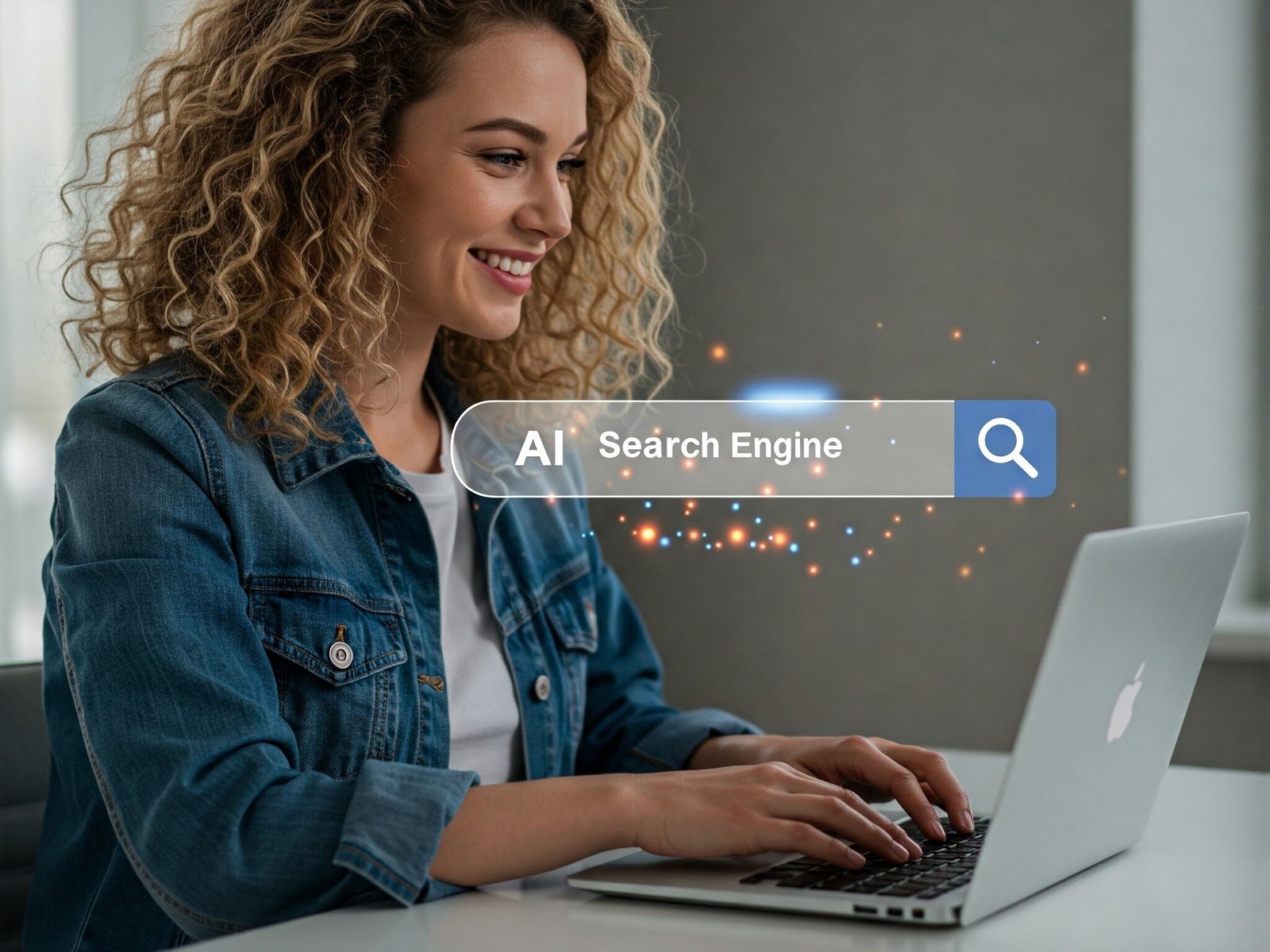
AI search engines offer many advantages, but they also come with some challenges and risks.
‘Hallucinations’ and the Spread of False Information
AI search engines can sometimes give inaccurate or misleading results. This can happen because of biased training data or errors in the algorithms. Like all generative AI, AI search engines are prone to ‘hallucinating’. This means they sometimes present false information as if it were true.
Bias in AI-Generated Answers
AI search engines can also give biased answers. This happens because the AI summarizes information it finds on the web. Its responses are based on what it has learned, which may reflect the biases of its developers.
Concerns over Data Collection and Usage
AI search tools analyze large amounts of data, which can include sensitive user information. This raises concerns about security and privacy. Without strong safeguards in place, this sensitive data could be exposed, mishandled, or exploited.
Ethical and Compliance Issues
AI tools can sometimes produce answers that are unethical or do not comply with regulations. It is a challenge to make sure that AI-driven search follows ethical guidelines and regulations. This is especially true in industries with strict regulations.
The Future of AI-Powered Search
AI search engines are constantly evolving. Here’s a look at what the future might hold:
More Personalized and Customized Search Experiences
Future AI search engines will likely offer even more personalized searches. They will learn your preferences and behaviors to give you customized results. This goes beyond simply understanding your search intent. Imagine a search engine that knows what you are interested in and gives you results tailored specifically to you.
Enhanced Multimodal Search
We can expect future AI search engines to seamlessly integrate different ways of searching. This means you will be able to search using text, images, voice, and even video. This will make searching easier and more intuitive.
Improved Accuracy and Reliability
As AI models continue to improve and are trained on more data, the answers they give will become more accurate and reliable. Ongoing research and development will help to reduce biases and make AI models better at answering complex questions.
Integration into Daily Workflows
AI search tools will become more integrated into our daily work. They will give us real-time, accurate answers and make it easier to find and use information.
Search Engines and Digital Assistants
The difference between search engines and digital assistants like Siri or Alexa might soon disappear. AI could become like a universal assistant, helping us with all kinds of tasks, not just finding information.
AI’s Role in Content Creation
AI will play a bigger role in helping businesses create content. It can help generate ideas, structure content, and even create different versions for different audiences. This will help businesses optimize their content for search engines.
Publisher Engagement
It is important for publishers and AI search providers to work together. Since AI search engines can sometimes reduce clicks to websites, they need to find ways to ensure publishers are fairly compensated for their content. Some search engines, like Perplexity, are already starting to do this.
Conclusion
Generative AI is changing how we find information online. It offers a more intuitive, personalized, and efficient way to search. AI search engines understand the context of your search and can give you direct answers. However, it is important to address challenges like accuracy, privacy, and ethical standards. By balancing innovation with responsibility, we can use the full potential of AI-powered search while minimizing its risks. AI is changing how we interact with information online, and users are encouraged to embrace this new way of searching.
Frequently Asked Questions (FAQs)
What is Generative AI in the context of Internet Search?
Generative AI in search uses AI systems to understand your searches when you use everyday language. It gives you answers in a way that sounds like a person wrote them, often giving you direct answers instead of just showing you links to websites.
How does AI-Powered Search differ from traditional search engines?
AI-powered search understands the context of your search. It tries to figure out what you really mean and gives you personalized results. This is different from traditional search engines, which mostly rely on matching keywords.
Are AI Search Engines Replacing Traditional Search Engines?
AI is making search better, but it is not entirely replacing traditional search. Many platforms are combining AI features with traditional search methods.
Can AI Search Engines be trusted for accurate information?
AI search engines are getting better at giving accurate information, but it is always a good idea to double-check important information. You can do this by looking at multiple sources, especially for complex topics.
How does AI-powered Search Impact Privacy?
AI search often needs more data to give you personalized results. This can raise privacy concerns. Many providers are developing ways to protect your privacy, but you should be aware of how these companies collect and use your data.
Articles Referenced:
11 Top AI Search Engines to Know – Built In
AI means the end of internet search as we’ve known it – MIT Technology Review
New Report From .Trends & Statista Reveals How AI Search is Changing the Web – Semrush Blog
Why Google, Bing and other search engines’ embrace of generative AI threatens $68 billion SEO industry – The Conversation
GenAI search vs. traditional search engines: How they differ – TechTarget
Generative AI vs. Traditional Search: Technical Differences – matthewedgar.net
What Is Perplexity AI? Understanding One Of Google’s Biggest Search Engine Competitors – Jasper AI Blog
How Many Google Searches Per Day (2025 Statistics) – Demand Sage
AI Search Engines Referenced in This Article:
Perplexity – perplexity.ai
Introducing ChatGPT search – openai.com
Microsoft Copilot Search – microsoft.com
Generative AI in Search: Let Google do the searching for you – blog.google
Gemini – gemini.google.com
DeepSeek – chat.deepseek.com
Felo – felo.ai
You.com – you.com
Andi – andisearch.com
Komo.ai – komo.ai
Waldo.fyi – waldo.fyi
Brave Search – search.brave.com




